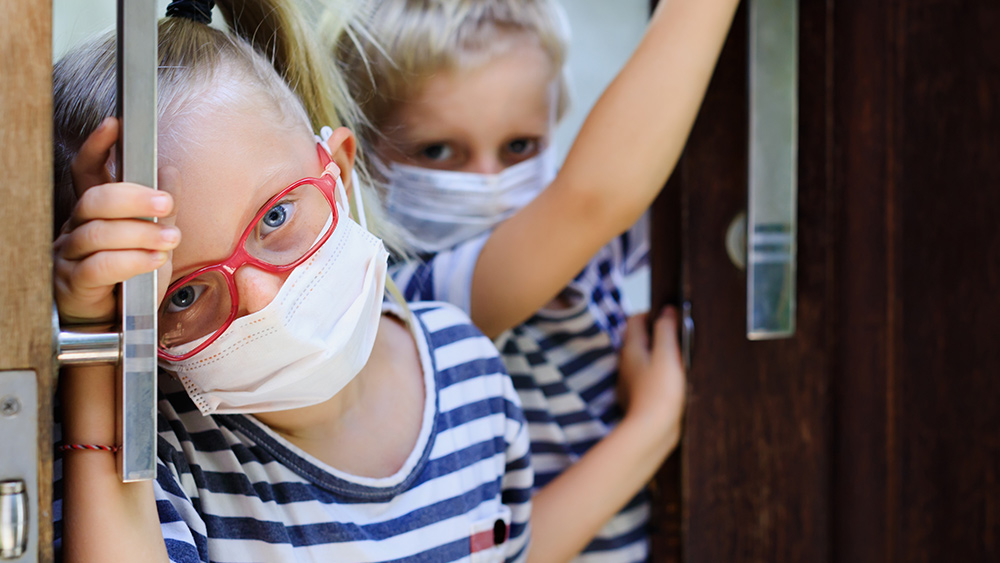
Oxford began its pediatric trial in mid-February when it enrolled 300 volunteers in Oxford, London and two other areas in the United Kingdom to participate in its vaccine trial. The volunteers consist of children between the ages of six to 17 who were signed up to participate by their parents. More than 200 of the children and teenagers will get the vaccine while the rest will get a placebo – a meningitis vaccine shot.
The university's researchers said the children and teenagers who will receive the meningitis vaccine shot will serve as the trial's control group. They claimed that the shot is safe for children, although it is expected to "produce similar reactions" to the coronavirus vaccine, such as soreness in the arm after injection. (Related: Scottish woman develops severe and painful rashes all over her body immediately after getting AstraZeneca coronavirus vaccine.)
A spokesman for the university said that no safety issues were noted before the trial was suspended. However, Oxford's concerns regarding the deaths and the sudden onset of rare blood clots in adults have made the university wary of continuing the trial. It will only resume its vaccine tests on children once Britain's top drug regulator – the Medicines and Healthcare products Regulatory Agency (MHRA) – says it is acceptable to do so.
Oxford did not disclose how many participants have already received the AstraZeneca vaccine. It has contacted the parents of the participants to ask them to continue attending all of their scheduled visits with the trial sites. It is unclear whether these underage participants will continue receiving the coronavirus vaccine or if the university will merely monitor them to keep getting trial data.
Listen to this special Situation Update episode of the Health Ranger Report, a podcast by Mike Adams, the Health Ranger, as he talks about how many vaccinated individuals will pass away due to the vaccine's side effects, while those who refuse to take the vaccine will be "hunted down, rounded up and thrown in COVID concentration camps."
MHRA refuses to acknowledge link between AstraZeneca vaccine and blood clotting
"We are aware of the decision taken by the University of Oxford to pause dosing in the trial of the Oxford University and AstraZeneca COVID-19 vaccine trial in children whilst the MHRA safety review is ongoing," said Dr. June Raine, head of the MHRA, in a statement. "Participant safety in any clinical trial is our top priority, and no safety concerns have been reported with this trial."
The MHRA has stated that it is currently conducting a "thorough and detailed review" of the Oxford-AstraZeneca vaccine. At the same time, it has also denied any proven link between the life-threatening and rare blood clots and the vaccine.
According to MHRA, there have been 30 reported cases of blood clotting, seven of which were fatal. The agency tried to downplay the situation by claiming that the blood clotting condition is very rare since Oxford-AstraZeneca has administered over 18 million doses of its vaccine.
Meanwhile, the MHRA's European counterpart, the European Medicines Agency (EMA), is likely to acknowledge the link between the clotting and the vaccine.
Dr. Marco Cavaleri, the EMA's head of health threats and vaccine strategy, told an Italian newspaper that there is a clear association between the vaccine and the blood clotting incidents and deaths that have been reported based on the evidence that the EMA has. Unfortunately, Cavaleri does not believe the EMA's conclusions on the matter will affect how European countries will proceed with their vaccine rollout plans.
"Of course, it would be preferable for there to be a single position at the European level," said Cavaleri. "But … let's not forget that COVID is hitting various countries differently. In Italy, 500 people are still dying every day [and] in Norway almost nobody is dying. These factors justify different approaches."
Even the World Health Organization has commented on the situation. On Tuesday, it said that there was no reason to change its own assessment that the benefits of taking the AstraZeneca vaccine outweighed the risks.
While other European nations have suspended the AstraZeneca vaccine, or restricted its use only to certain portions of their populations, Britain has resisted any restrictions in its use, arguing that there has been no proof of any link between the vaccine and blood clots.
Learn more about the dangers of the Oxford-AstraZeneca coronavirus vaccine, and how governments around the world are reacting to the jab's connection to blood clotting conditions by reading the latest articles at Vaccines.news.
Sources include:
Please contact us for more information.






















